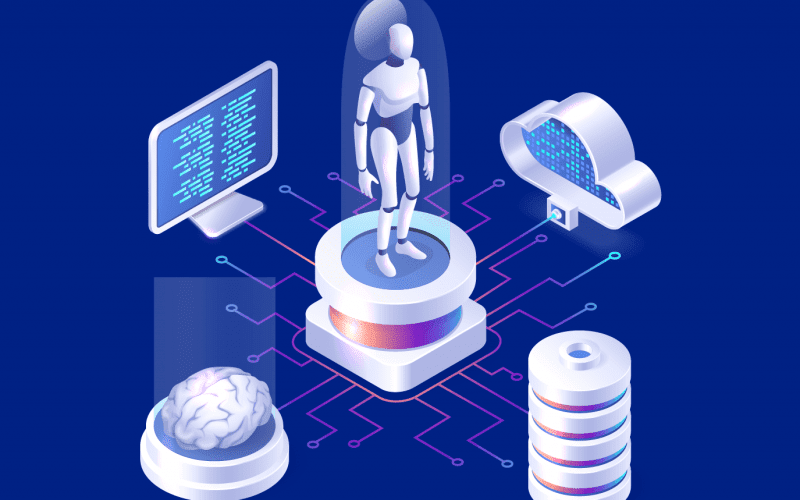Top 10 Engineering Applications of Artificial Intelligence:
Artificial intelligence (AI) has emerged as a powerful tool across various industries, revolutionizing the way we solve complex problems and optimize processes. In the field of engineering, AI applications have significantly impacted traditional practices, enhancing efficiency, productivity, and innovation.
From design to maintenance, AI is transforming engineering in numerous ways. In this article, we will explore the top 10 engineering applications of artificial intelligence that are reshaping the industry.
Product Design and Optimization:
AI is revolutionizing the product design process by providing engineers with advanced tools to create innovative and optimized designs. Machine learning algorithms can analyze vast amounts of data, identify patterns, and generate insights that aid in the creation of superior products.
AI-powered design optimization enables engineers to explore a wider range of possibilities, resulting in improved performance, reduced costs, and enhanced customer satisfaction.
Predictive Maintenance:
Predictive maintenance is a game-changer for engineering industries, and AI plays a vital role in making it possible. By analyzing real-time sensor data, AI algorithms can detect patterns and anomalies that indicate potential equipment failures.
This proactive approach enables engineers to schedule maintenance activities more efficiently, minimize downtime, and reduce maintenance costs. Predictive maintenance ensures optimal equipment performance and improves operational efficiency.
Robotics and Automation:
The integration of AI and robotics has led to significant advancements in automation. AI-powered robots can perceive their environment, make intelligent decisions, and adapt to changing circumstances.
This technology finds applications in manufacturing, healthcare, agriculture, and other sectors. AI-driven robotics enhances precision, efficiency, and safety, transforming various engineering processes.
Energy Management and Optimization:
AI has revolutionized energy management by providing intelligent systems to optimize energy consumption and distribution. Machine learning algorithms analyze energy usage patterns and make recommendations to reduce waste, increase efficiency, and lower costs.
AI-driven energy management systems improve sustainability, support renewable energy integration, and enhance overall energy efficiency.
Structural Analysis and Design:
AI is transforming structural analysis and design by automating complex tasks and enhancing accuracy. Engineers can leverage AI algorithms to analyze structural behavior, predict failure modes, and optimize designs.
This technology improves safety, reduces design time, and enables engineers to create structures that meet the highest standards.
Quality Control and Defect Detection:
AI has streamlined quality control processes by automating defect detection in manufacturing. Machine learning algorithms analyze visual data, sensor data, or acoustic signals to identify defects and anomalies.
This application enhances product quality, reduces waste, and increases production efficiency. AI-driven quality control ensures consistent standards and customer satisfaction.
Natural Language Processing and Communication:
Natural Language Processing (NLP) enables engineers to improve communication and streamline information retrieval. AI-powered NLP algorithms understand and process human language, facilitating efficient documentation, information extraction, and collaboration.
Engineers can easily access technical documents, extract valuable insights, and communicate effectively across teams.
Optimization of Supply Chain and Logistics:
AI-driven optimization is transforming the supply chain and logistics operations. By analyzing large volumes of data, AI algorithms optimize inventory management, demand forecasting, and route planning.
This application minimizes costs, improves delivery times, and enhances overall supply chain efficiency. AI enables engineers to make data-driven decisions and adapt to dynamic market conditions.
Environmental Monitoring and Sustainability:
AI plays a crucial role in environmental monitoring and sustainability. AI-powered systems analyze data from environmental sensors, satellites, and other sources to monitor air quality, water management, waste management, and climate change.
This technology assists engineers in making informed decisions to promote sustainable practices and minimize environmental impact.
Virtual Assistants and Decision Support Systems:
Virtual assistants and decision support systems powered by AI provide engineers with real-time information, insights, and recommendations. These systems enhance productivity, support complex decision-making processes, and streamline workflows.
Virtual assistants assist engineers in accessing critical information, performing calculations, and providing technical guidance.
Conclusion:
In conclusion, artificial intelligence has transformed the field of engineering by providing advanced tools and capabilities. From product design optimization to predictive maintenance, robotics, energy management, structural analysis, quality control, supply chain optimization, environmental monitoring, and virtual assistants, AI applications have revolutionized traditional engineering practices.
Embracing these technologies enables engineers to achieve higher levels of efficiency, innovation, and sustainability. As AI continues to advance, its impact on engineering applications will only expand, reshaping the future of the industry.




0 Comments